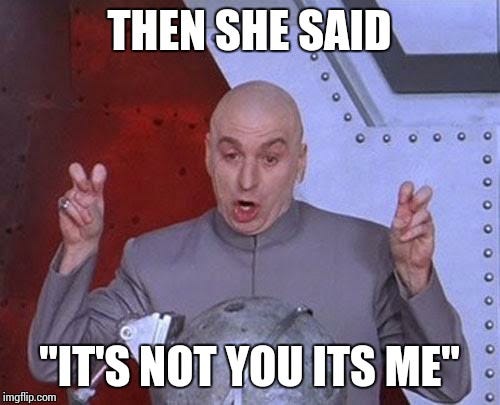BONA, derived from the Zulu greeting to a multitude of people, 'Sanibona' - directly translated as 'we see you' - forms the premise of this publication, by Tebo Mpanza
A classic breakup cliché. The universal soft exit. The polite way to shift blame from the person being left to the one leaving. Designed to let someone down gently while avoiding the hard conversation. You don’t use these words when you walk away, but this is what you’re saying when you do.
The subject of self-awareness in relationships doesn’t get much air time. No one pulls us aside anymore. No one says, Hey, you can be a bit much sometimes. You overshare. Or you never share at all. You don’t listen. (Unless you’re South African, in which case an elder will tell you that daily, “awuzwa”) No one tells us, You take people for granted. You disappear sometimes. Correction is the enemy now. Our blind spots don’t disappear. They follow us—into friendships, relationships, jobs. Every new beginning.
When my wife, Bex, told me early in our marriage—maybe even last week, to be honest—that I shut down in disagreements, I was surprised. I don’t shut down, I thought. I’m an internal processor. But the problem was, I never let her in on that process. It was clear in my head. And when I finally did communicate, she hit me with another piece of feedback: Arguing with you is like arguing with a lawyer.
Marriage is excellent for blind spots. But shouldn’t any close relationship be? Shouldn’t friendships be a place where iron sharpens iron? Maybe we need to bring feedback back. Maybe we don’t call it “feedback.” Maybe it’s just friendship.
It’s not you, it’s me.
What if, sometimes, it is us?
Chasing apologies you’ll never get. Lurking, lingering, always there—never taking time off. Giving them every opportunity to take you for granted. And they do. And we let them. And we have nothing to show for it, while they have the accolades and the applause. It’s cool, though. You have your integrity.
You learned a few things along the way. Things you’ll take into your next season. Nothing is wasted, we used to say. Perhaps to make us feel better about our subservience. You spent years chasing meetings, only to realise later that they were never invested. I’ll do things differently next time. Will I? Do I? You served a purpose at the time. The question is—whose?
So yeah. Maybe it is us. Us who need to back off. Us who need to heal, to change, to mute them for a while if that’s what it takes. I don’t know. Do what you need to do to get clarity. And get on with your life. It’s short. Pick your battles. Move on. You don’t get the time back. Meet some new people. Pick up an old hobby.
How often do we assume they were the problem? What if the problem was you? What if you’re lost? What then? Where do you begin again? How do you retrace your steps? Reintroduce yourself? Re-enter the room? They know you. Do you?







Letting one's partner in the process!
This is quite something. I miss it many times - ponder internally over a matter, communicate an almost done conclusion and then spend energy defending your stance just to save one's face from a blundered process undertaken in solitude.
I have been guilty of that for many years!
The other side of the coin though is that one becomes hesitant or scared of being accused of taking a holier-than-thou position. There is this term that has become very popular: "Don't judge me!" It discourages the pulling aside of anyone for the sake of offering an alternative way or probing more about a situation.
"It's not you, it's me." There is more healing needed from this pandemic.
Thank you for your thoughts.
Hayi, hayi, hayi, bafo!
There are too many things here, but it really boils down to having a growth mindset & wanting to be a better dad, hubby, or friend ... Don't just welcome feedback, ask for it.